
The neglected or endangered child—the orphan, the vagrant, the waif—is a character with deep roots in the Western canon. Beginning perhaps with the binding of Isaac in the Bible, this figure appears everywhere: in Johann Wolfgang von Goethe’s The Sorrows of Young Werther, in Charles Dickens’s oeuvre and, more recently, in Toni Morrison’s. These stories captivate young and old readers, provoking thrill and worry. Children who are lost fill us with grief; kids who wish to rise above their tough circumstances or go on an epic adventure bring us the highest joy, and we seek these narratives out in books as disparate as Maurice Sendak’s Where the Wild Things Are and Tove Ditlevsen’s The Copenhagen Trilogy. Why? Because each of us knows, in some measure, what they’re feeling.
We all understand what it means to feel abandoned, ignored, or underestimated. Some of us may have experienced it for just a moment, or a day; others may have felt it for a decade, or a lifetime. Regardless, we carry those memories for the rest of our lives, and we have been trying to express those feelings for as long as we, as a species, have known how to express anything.
In the sea of great literature that tells these tales, here are some of the titles that helped me write about my own complex childhood in my new memoir, Dirtbag, Massachusetts. Their circumstances are varied, but their depictions of the unique ways kids feel delight and pain will resonate with any reader.
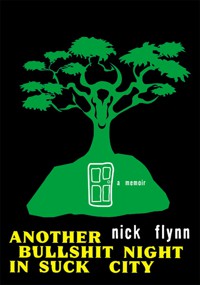
Another Bullshit Night in Suck City, by Nick Flynn
To not mention this book—and to not mention it first—would be a crime. Flynn’s memoir is about his family’s struggles with alcoholism and with one another; it’s set in Boston and centers on a homeless shelter where Flynn himself worked. When I first read it, I was surprised by the number of places, emotions, and even experiences that overlapped between the author’s life and my own: addiction, mental illness, generational trauma. I was spellbound by how Flynn structured the narrative, which was inspired by Herman Melville’s Moby-Dick. In that novel, the reader is aware of the titular white whale for most of the story through hearsay, with the giant beast appearing only in the final pages. In the same way, Flynn’s father casts a shadow over his own family history and life, without being present during his childhood. Only after meeting his father does Flynn begin to work on himself. When I finished it in my early, early 20s, I remember thinking, That’s the type of book I want to write—vulnerable, poetic, kind.
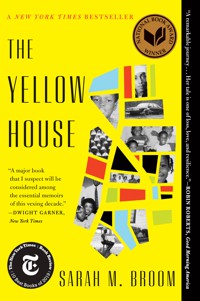
The Yellow House, by Sarah M. Broom
What I love about this memoir, which won the National Book Award for Nonfiction in 2019, is its incredible sense of place. Broom’s story is submerged in one of the most lionized—and complex—cities in America: New Orleans. More specifically, she focuses on New Orleans East and the yellow shotgun house that the author’s steadfast mother, Ivory Mae, bought in 1961, and where Broom grew up as the youngest of 12 siblings. The Yellow House takes on history and structural racism while also telling small, intimate stories that show how families, like neighborhoods and cities, are evolving, living things that shift and affect their members in an endless dance. Broom’s brilliant book demonstrates that context and setting are crucial to telling a story, and will ring true for anyone who also grew up in a house that loomed large over everything that happened to their family.
[Read: How to write the book no one wants you to write]
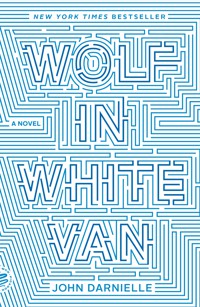
Wolf in White Van, by John Darnielle
In this novel, the wounds of youth are carried for a lifetime. Its author is the man behind The Mountain Goats, a band I’ve adored for more than two decades. Wolf in White Van tells the story of Sean Phillips, who suffered a disfiguring injury when he was 17 and became a recluse. When we meet him, he has invented an intricate, mail-based role-playing game to allow for a modicum of human connection. But when something terrible happens to a couple of teenage players of the game, he is forced to enter the real world again. Wolf in White Van is a master class in restraint. Darnielle paints a picture of isolation and loneliness, but by not giving away the whole truth of what happened to Sean until the very end, he dares the reader to figure out the complexities of the novel in almost the same way they untangle the complexities of the game. It encouraged me to not turn away from the anger in my younger years—and to keep some of its causes unseen until the last pages of my own book.
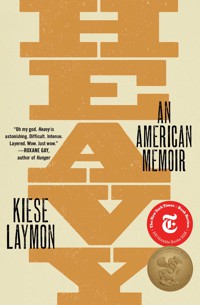
Heavy, by Kiese Laymon
This memoir is incredible. The writing talent on display is undeniable, and every sentence sings. “My body knew things my mouth and my mind couldn’t, or maybe wouldn’t, express,” Laymon writes early in the book. That sentence hit my heart; it was something I knew to be true, but had never been able to articulate. At the book’s center are Laymon’s relationships with his mother and with his own body. Who among us has not had difficulty with our body? With our mother? (If you haven’t, I’d love to hear your secret.) What truly inspires is not the book’s universal themes, but instead Laymon’s incredible striving. Here is a man trying to find the truth, to communicate something to his parent and find common ground or, if not that, an understanding of what their relationship has become and why. To do so, Laymon examines sex, gambling, racism in America, and himself. Digging into how he grew up becomes a way to finally say aloud what he’s always carried with him—and to hope for a better future.
[Read: The personal cost of Black success]
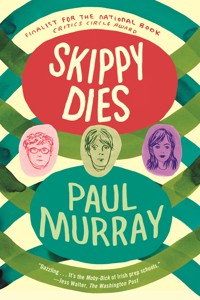
Skippy Dies, by Paul Murray
In the opening pages of this raucous novel filled with unforgettable characters, Skippy, a hapless 14-year-old pupil at a fancy boys’ school, writes a mysterious message in jelly filling on the floor of a doughnut shop and drops dead. But this mystery wasn’t what drew me to the book, nor the fact that it focuses on adolescents who attend a boarding school, as I did. The core of Murray’s writing is its humor: Skippy’s experience at his school, Seabrook, is raunchy, searching, and complex, but always deeply funny. Told from numerous different perspectives, stretching across a wide variety of subjects—string theory, organized religion, folklore, poetry—Skippy Dies is a tutorial in the ability to find laughter in the bleakness of growing up.
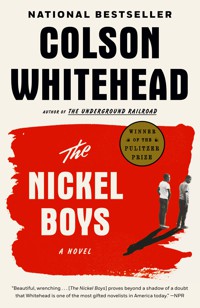
The Nickel Boys, by Colson Whitehead
This 2020 Pulitzer Prize–winner is tragic and unrelenting. A report released in 2016 documented more than 50 skeletons buried on the grounds of the Dozier School for Boys, in Florida, which operated from 1900 to 2011 housing orphans, wards of the state, and children convicted of crimes. Whitehead uses that real-life horror to weave an incredibly powerful novel about the cruel, racist abuse suffered in the name of rehabilitation at the titular Nickel Academy. At the center of the story are two young boys, Elwood Curtis and Jack Turner, who both end up there in the 1960s. The Nickel Boys is about how the smallest bit of bad luck can have a rippling effect throughout one’s entire life—but it’s also about how the people we love can change us in ways we might not ever be able to imagine.
[Read: What is crime in a country built on it?]
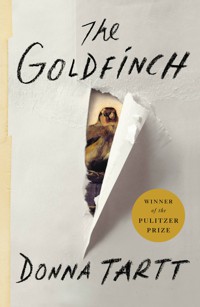
The Goldfinch, by Donna Tartt
One of the biggest titles of the past decade, The Goldfinch, a kaleidoscopic achievement, covers so much ground. It’s the story of Theo Decker, whose mother is killed during a bombing at the Metropolitan Museum of Art. Young Theo slips away from the explosion with a painting by the Dutch artist Carel Fabritius, the titular Goldfinch. The whole book is masterful and has indelible moments in both New York City and Amsterdam, but the section that I absolutely love is set in the sandy outskirts of Las Vegas, in the novel’s middle. Here, Theo and Boris Pavlikovsky, two friends without much parental supervision, forge the bonds of young rascals; they drink, take drugs, and try to figure out what to do with Theo’s stolen, priceless painting. As someone who grew up playing violent games in the woods with real BB guns and turning old hair-spray cans into flamethrowers with my friend, I can attest that The Goldfinch artfully displays the reckless abandon that comes from a feral, unsupervised youth.
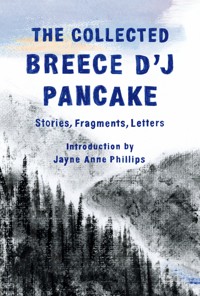
The Collected Breece D’J Pancake: Stories, Fragments, Letters, by Breece D’J Pancake
This assemblage of Pancake’s work—especially its 12 bleak, beautiful stories about trilobites and coal country and truckers and also tenderness, in their way—is a fundamental stepping-stone in my evolution as a reader. Pancake writes about Virginia and West Virginia, places that I had never been when my father gave me my first copy. But here was writing that reflected my own experiences growing up in a low-income area in North-Central Massachusetts: people in trailers. Hunting. Rural isolation. The joys and hardships that come from living in the woods. The prose is unpolished, yet Pancake’s lyricism somehow manages to shine, whether it’s describing a pregnant farm wife or a snowplow driver with a secret. The mythos of the collection is also part of its pull. Pancake died by suicide at 26; I have grappled with suicidal ideation, and this galvanizing book convinced me that my account might also have some value.
When you buy a book using a link on this page, we receive a commission. Thank you for supporting The Atlantic.






